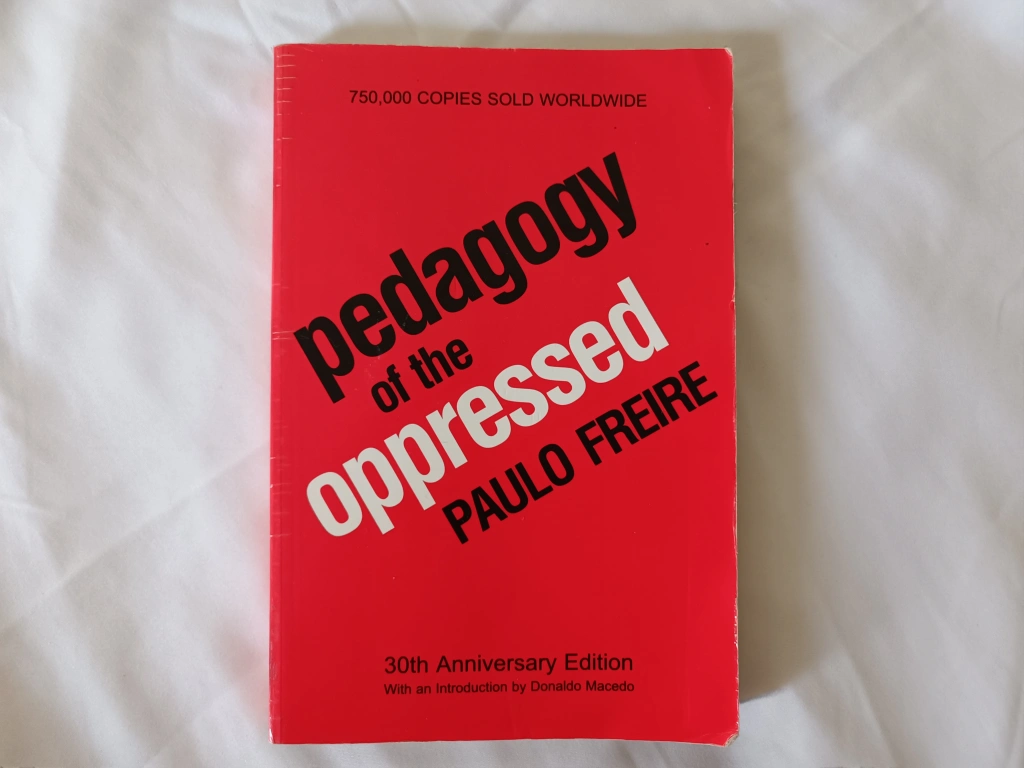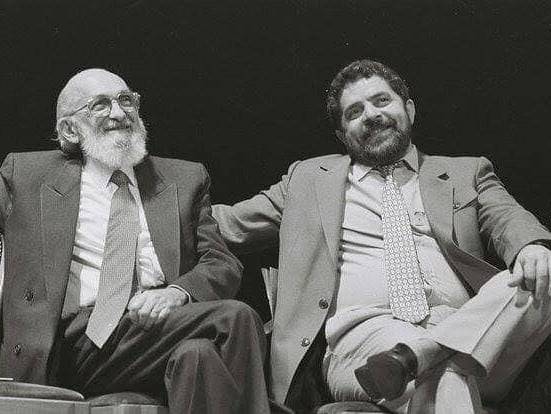Author of Pedagogy of the Oppressed, Brazilian educator Paulo Freire is as controversial as ever.
September 19, 2021, marks the 100th anniversary of Paulo Freire’s birth. Freire, a Brazilian educator known worldwide as the founder and advocate of “critical consciousness,” a forerunner of critical pedagogy, is being celebrated on this centennial. Two years ago, the golden jubilee of his bestseller, Pedagogy of the Oppressed (1968), was commemorated in Brazil and elsewhere, underscoring Freire’s profound influence as his ideas continue to find fertile ground and take root in many countries.
From his hometown of Recife in northeastern Brazil to countries such as Chile, Zambia, Tanzania, Guinea-Bissau, and Angola, where Freire established adult literacy programs, his advocacy for radical social transformation through education has exerted profound influence across various fields including education, sociology, and community development
For Freire, education is either a form of emancipation or an instrument of oppression. Consequently, he advocated for a pedagogical approach developed with students rather than for them, particularly those from marginalized populations.
Freire’s model encouraged students to critique both educational and political systems, emphasizing the links between individual struggles and their social contexts.

Born to middle-class parents, his father’s death in 1929, during the Depression, impoverished his family. As he recalls in Moacir Gadotti’s book, Reading Paulo Freire, “I didn’t understand anything because of my hunger. I wasn’t dumb. It wasn’t a lack of interest. My social condition didn’t allow me to have an education. Experience showed me once again the relationship between social class and knowledge”.
Freire described his ideology as a blend of Jesus Christ and Karl Marx. Despite expressing frustration with the institutional church’s reluctance to engage in revolutionary movements, he maintained close ties with many Catholic clergy, particularly those involved in Liberation Theology.
His leftist politics played a pivotal role in Brazil’s history. In 1963, he served in João Goulart’s center-left government as president of the National Commission on Popular Culture. Under his leadership, the committee launched an educational campaign employing Freire’s teaching methods to promote literacy among 5 million Brazilian citizens. At the time, literacy was a prerequisite for voting, and Goulart aimed to increase electoral participation through Freire’s initiative.
In 1964, the Brazilian military overthrew the Goulart government in a coup d’état and arrested Freire. During his trial, one of the judges accused him of plotting to transform Brazil into a communist state and Freire was imprisoned for 70 days before he received political asylum in Chile. He spent sixteen years in exile, including a year as a visiting professor at Harvard and ten years as an education advisor to the World Council of Churches.
Freire returned to Brazil in 1980, where he taught at the University of Sao Paulo and became one of the founding members of the Workers’ Party (PT) with Luiz Inácio Lula da Silva. The educator supervised many of the PT’s adult literacy projects and served as municipal secretary of education in Sao Paulo between 1989 and 1991.
Paulo Freire died of heart failure at the age of 75 on May 2, 1997. His philosophy and legacy helped to elect President Lula in the 2002 general election, making him one of the international left’s most beloved icons.

During this period, federal funding for education saw a substantial increase—the Ministry of Education (MEC) nearly tripled its budget, and the National Fund for Basic Education (Fundeb) was established. Access to basic education was universalized and supported by social program requirements such as Bolsa Família, a state-funded stipend for families below the poverty line conditional on their children’s school attendance and vaccination.
In 2012, President Dilma Rousseff, successor to Lula, enacted a law declaring Paulo Freire the official patron of education in Brazil. Rousseff’s decree sparked significant controversy, particularly amplified after Jair Bolsonaro’s victory in the 2018 presidential election.
The debate surrounding Freire’s influence has become a focal point of heated national discourse, with Brazil’s right-wing attributing the perceived failures of the education system to his ideas, often accusing them of promoting cultural Marxism and ideological indoctrination of children.
Critics also highlight flaws in Freire’s social theory, pointing to its perceived lack of logical consistency and empirical evidence. They argue that it often presents a simplistic and overly optimistic view of socio-political transformation. Moreover, critics contend that the Marxist influence complicates matters further, sometimes contradicting Freire’s own Christian ethics.
Despite having Paulo Freire as its patron of education, Brazil ranked 57th out of 77 participating countries in the latest PISA (Programme for International Student Assessment) released in 2018. Only 2% of Brazilian students performed at the highest levels of proficiency (Level 5 or 6) in at least one subject, while 43% scored below the minimum proficiency level (Level 2) across all three subjects. Internationally, there has been criticism regarding the outcomes of Freire’s educational approach in countries such as Puerto Rico and Guinea-Bissau.
Nevertheless, interest in Freire’s work has grown over the years, particularly in the United States. According to publisher Paz e Terra, sales of Pedagogy of the Oppressed increased by 60% in the first half of 2019 compared to 2018.
On September 19, Google featured a Doodle on its homepage to celebrate Freire’s centennial, sparking both support and opposition to his ideas among numerous people and organizations worldwide. However, at the core of Paulo Freire’s philosophy is the belief in provoking debate freely: “If the structure does not permit dialogue, the structure must be changed,” he famously said.
To learn more, visit: freire.org



